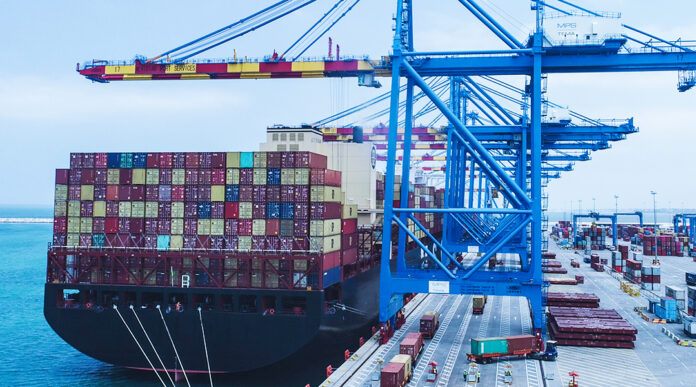After 176 days in office, the NDC government has officially launched its flagship 24-hour economy policy.
The 283-page document outlines in detail how the policy will be implemented and funded. It also reveals a notable shift in focus.
What was once seen as an initiative to keep state institutions and businesses operating round the clock has evolved into a broader strategy aimed at unlocking structural bottlenecks in Ghana’s economy.

The policy will be rolled out in two parts. The first involves direct incentives to encourage businesses to run longer hours. The second focuses on deeper reforms needed to support a continuous production model.
Tax breaks for those who stay open
The government is offering a range of tax and regulatory incentives to attract businesses.
Companies that sign up to the programme will not pay import duties on manufacturing equipment, renewable energy systems, raw materials, and logistics infrastructure. Firms in strategic agriculture sectors such as grains, vegetables, oilseeds, tubers, livestock, and sugar will be exempt from corporate income tax entirely.
Other businesses will benefit from corporate income tax rebates. Companies running two shifts will receive a 25% rebate. Those operating three shifts will qualify for a 50% rebate. Targeted VAT exemptions will also be applied to help lower the cost of locally made goods.
Firms operating between 10 pm and 6 am will benefit from discounted electricity tariffs. Exporters of manufactured goods will receive rebates of between 2 and 6% of their export value.
Participating companies will receive fast-tracked water and electricity connections and priority regulatory clearance to accelerate production timelines.
Access to credit will also be improved. The Development Bank Ghana will provide long-term, low-interest loans to help companies scale up. In the cocoa sector, the government has promised easier access to raw cocoa beans for local processors enrolled in the programme.
These measures are designed to increase production, create jobs, and strengthen exports. But they will require legal reforms before they can be fully implemented.
Parliament will have to amend existing laws on taxation, trade, investment, and procurement to bring the incentives into force.
Fixing the structure
The second phase of the policy focuses on major infrastructure. The government plans to build large industrial parks in every region, referred to in the policy document as Wumbei Parks.
Each park will occupy at least 50 acres and operate with its own power supply, mainly from solar and biogas. Police and fire services will be stationed within the parks to ensure uninterrupted operations.
These parks will be located near newly designated agroecological zones along the Volta Basin. The zones will combine farming and agro-processing, with irrigation systems fed by the Volta Lake.
Urban farming clusters, including greenhouses, will be developed near major cities to reduce food transport costs. In communities without arable land, greenhouse farming will be prioritised.
The goal is to integrate production and logistics, reduce supply chain costs, and enable continuous economic activity throughout the day and night.
A $4 billion question
The programme is estimated to cost $4 billion initially. The government has committed $300 million as seed capital, about 8% of the total. The remaining 92% will be mobilised through public-private partnerships, led by the Ghana Infrastructure Investment Fund.
To support funding, a 2.5% import levy will be imposed on goods that can be produced locally. These include processed foods, cosmetics, pharmaceuticals, cement, plastic household goods, second-hand clothing, sanitary pads, and diapers.
The government expects that the tax incentives will boost production enough to offset lost revenue. But the policy document does not provide any figures to back this claim.
Although it projects to create over 1.7 million jobs over four years, it lacks concrete projections for employment, export growth, or tax revenue. The math is missing.
Will It Work?
The 24-hour economy policy is being positioned as the centrepiece of the NDC’s economic revival strategy. It aims to fix both demand and supply issues in the economy. But success depends on execution.
The government has promised to pass new legislation to establish a 24-Hour Economy Authority, chaired by the president. A pilot programme involving 50 companies will also be launched.
But details on timelines, project sequencing, and fiscal risks are limited.
There is precedent for caution. The previous One District, One Factory (1D1F) initiative had a similar ambition. But by the end of 2023, after spending more than 500 million cedis, only 169 companies had received support, and many structural bottlenecks remained unresolved.
The difference this time is that the 24-hour policy is expected to be backed by law. That could make it harder to reverse after a change in government.
These are the central pillars, but the 283-page document is packed with dozens of other proposals, from digitised supply chains to urban farming schemes.
Still, critical questions remain unanswered. How will the government cover revenue shortfalls in the short term? Will it resort to borrowing? What safeguards are in place to ensure policy continuity beyond the next election cycle?
Ghana has unveiled one of its most ambitious industrial reforms in a generation. The incentives are bold, the structural vision is compelling, but the numbers are conspicuously absent.
Success will depend on private sector buy-in and the government’s ability to honour its incentives without turning them into loopholes.
DISCLAIMER: The Views, Comments, Opinions, Contributions and Statements made by Readers and Contributors on this platform do not necessarily represent the views or policy of Multimedia Group Limited.
DISCLAIMER: The Views, Comments, Opinions, Contributions and Statements made by Readers and Contributors on this platform do not necessarily represent the views or policy of Multimedia Group Limited.



